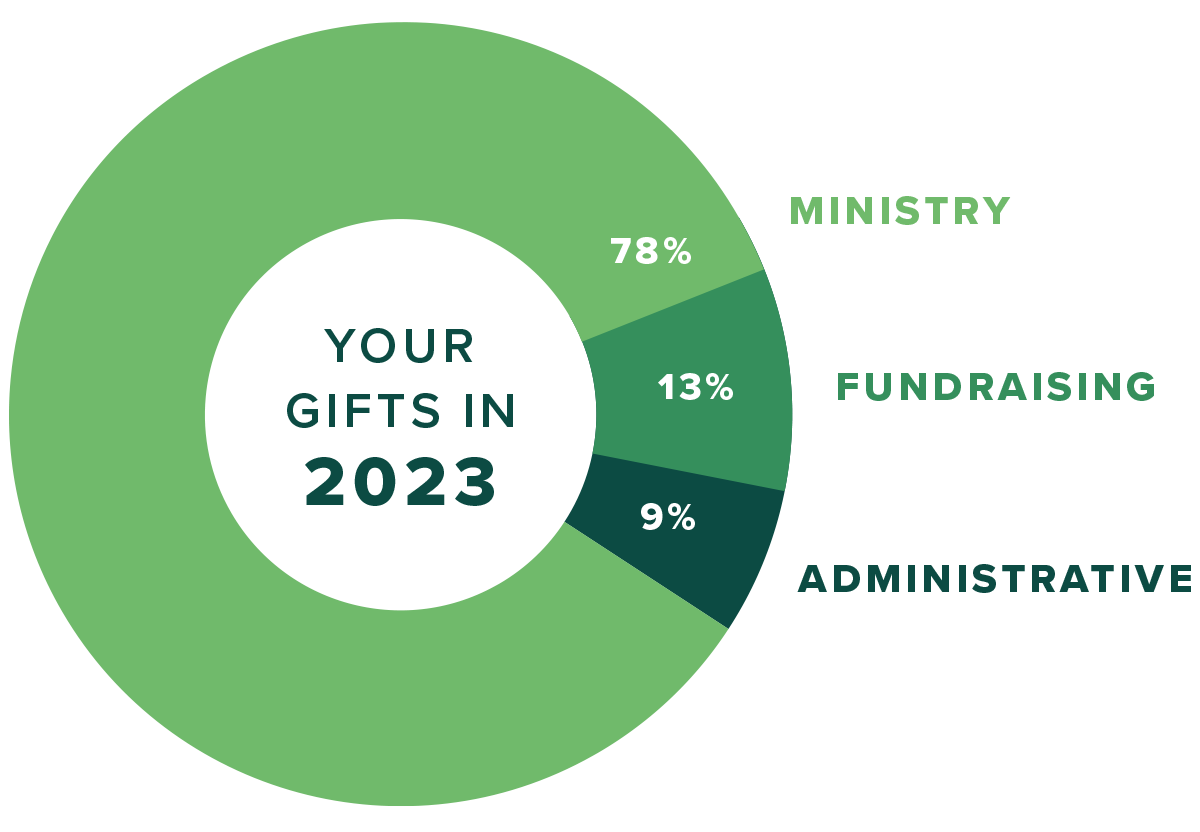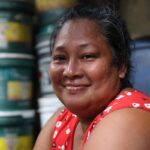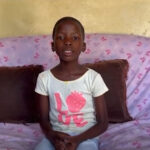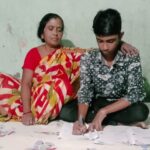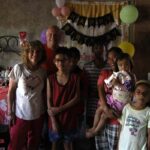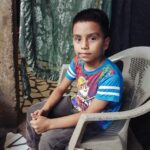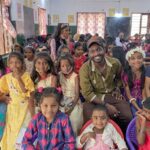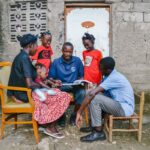Engineering a New Beginning
A young woman in Uganda is giving back to her community after rising from the struggles of poverty and the horrors of living in a swamp, thanks to support from a local church and Child Champions.

Sylivia is the Children’s Ministry Coordinator at St. Stephen’s Church Kisugu, OneChild’s partner in Kampala.
“Can we take a photo for memory?” asks Sylivia. “I love photography, but I enjoy having my photos taken.”
Sylivia, 25, is the Children’s Ministry Coordinator at St. Stephen’s Church Kisugu, OneChild’s new partner in Uganda’s capital, Kampala.
After taking a selfie and a few photos while at the front of the church, we move to the back of the church where beautiful palm trees and a long staircase make for a perfect background for more photos.
After the photos, as we sit at the staircase of the church which overlooks the other side of the city, Sylivia points and says in a calm, composed voice, “That is where my family and I called home for a long time.”
The place where she once lived is a slum known as Kanyogoga. It lies north of the railway line in the Namuwongo neighborhood on the outskirts of Kampala.
Back in the 1960s, the Namuwongo neighborhood was predominantly occupied by low-income earners who mostly did casual labor to earn a living.
They mostly occupied the land south of the railway line because the north side was a swampy valley. Water from the swamp was used by farmers to grow sugarcane.
But as Kampala’s population grew in the late ’90s and early 2000s, some upper- and middle-class earners bought up land and moved into the Namuwongo neighborhood.
This forced the casual laborers and those who were jobless to move north into the swampy area. Cramped single- and double-roomed tin and brick houses were constructed for these people to rent.
The swampy area had greenish water flowing in trenches full of litter, a muddy railway line, little food kiosks by the roadside, makeshift shacks, and public latrines along pathways.
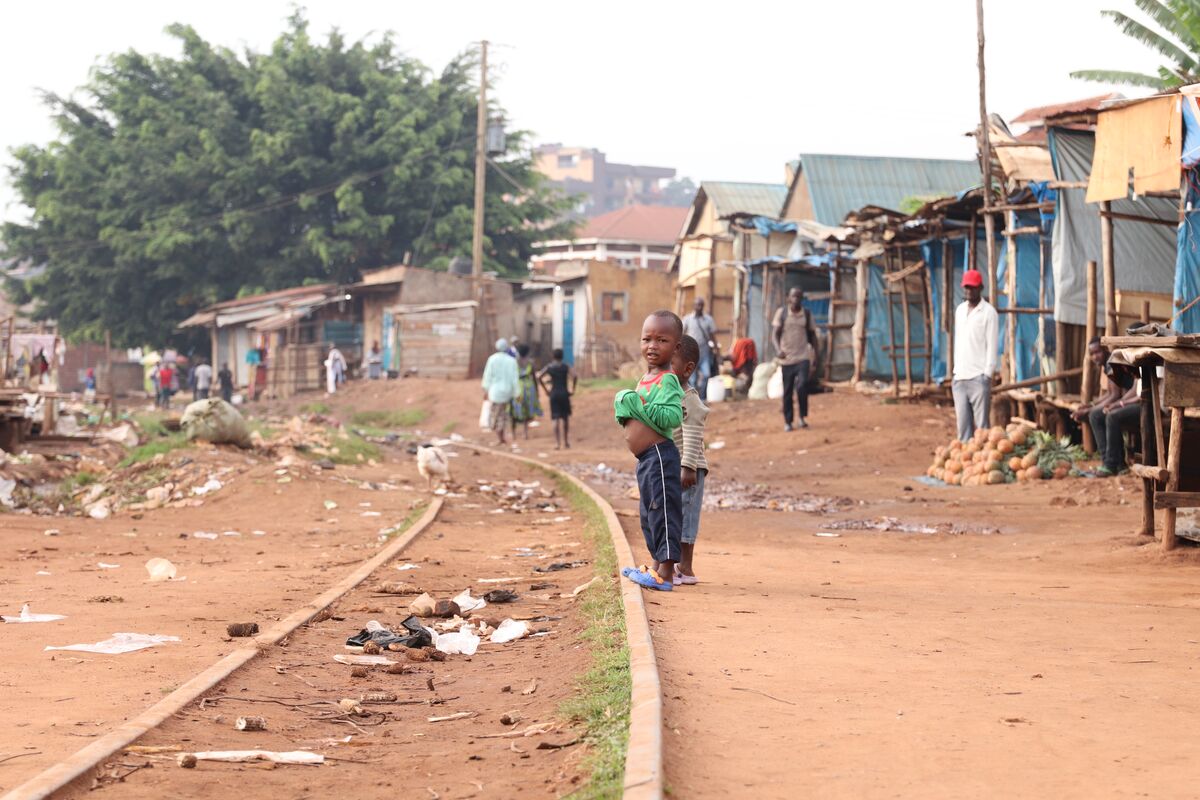
A muddy railway line cuts through the slum of Kanyogoga.
For Sylivia’s family, this is the reality they were hit with when their previous life took a turn for the worse.
Falling on Hard Times
Sylivia’s family of two brothers and their parents initially lived in Jinja, where she and her siblings were born.
All was well there until her father, who was a production manager at a mattress company, lost his job. He had been the family’s sole provider.
Sylivia and her brothers had to go back and live at their maternal grandparents’ home in a village in Jinja as their parents tried to find a way to earn a living.
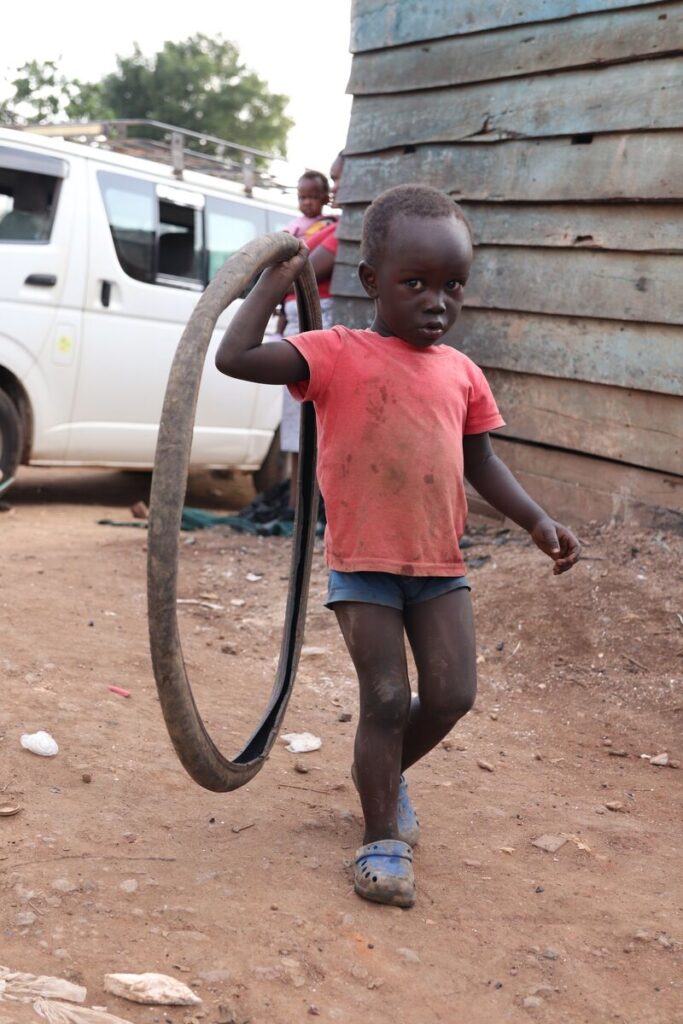
A little boy plays with a tire in the Kanyogoga slum.
At the time, Sylivia, who was the eldest, was in grade 8. Moving back to her grandparents’ home meant that they had to stop going to school because they couldn’t afford school fees.
Her parents traveled to Kampala to try to find jobs. Unfortunately, her father was not qualified to get a job at any company in the city.
Sylivia’s mom did not have any education, and while in Jinja, she was a housewife. But when their situation took a turn for the worse, she needed to chip in, so she sought casual labor jobs.
Sylivia says that in the first months of their moving into the city, her mom had to move in with one of their relatives who lived in Kanyogoga slum as she worked as a housemaid.
Her dad would at times sleep on the streets because he couldn’t afford to pay rent for a house. He did, however, have tailoring skills and on occasion rented a sewing machine to do some work for pay. Some days he’d work on commission in other tailoring shops. But the work was spotty, and he would sometimes go for days without work.
While her parents were in the city finding their footing, Sylivia and her siblings were in the village and missed two terms of school.
“My biggest worry was missing to proceed to the next grade with my friend when the year ended,” she says. “At the time, the future was so bleak for me and my brother.”
But just before Sylivia gave up hope, some good news came her way.
Her mother had gotten a stable job as a housemaid in a home where she was assured of work daily and was earning $13 monthly. This allowed her to save up to afford a 10-by-10-foot dwelling in the Kanyogoga slum and have her children move in with her.
The Hardest of Hard Places
“I remember that day like it was yesterday,” Sylivia says. “We arrived in Kampala that evening, and Dad is the one who came to pick us up.”
As they walked home, she recalls crossing a stream flowing with dirty brown water full of litter.

Sylivia walks around in the slum where she grew up.
“Do people really live here?” she asked her dad.
Little did Silivia know that that was the community she would call home. Reality hit when they arrived at their house.
“There was no bathroom or toilet. It was a single room with no window or ventilation,” she recalls.
“We only had a door that faced the sewer plant. So on hot days, we had to stay outside until the temperatures cooled down, then got into the house. We wouldn’t risk opening the door because mosquitoes would fill the house.”
The community had public toilets that charged a fee. So, Silivia says, to access free toilets they had to walk a mile to the church or wait to use the sewer plant’s toilets at night. They fetched water from a community source less than a mile from their house.
They also struggled to afford food. They only had one meal a day, and on the toughest days, their mom would buy two spoons of succotash, a mixture of cooked maize and beans.
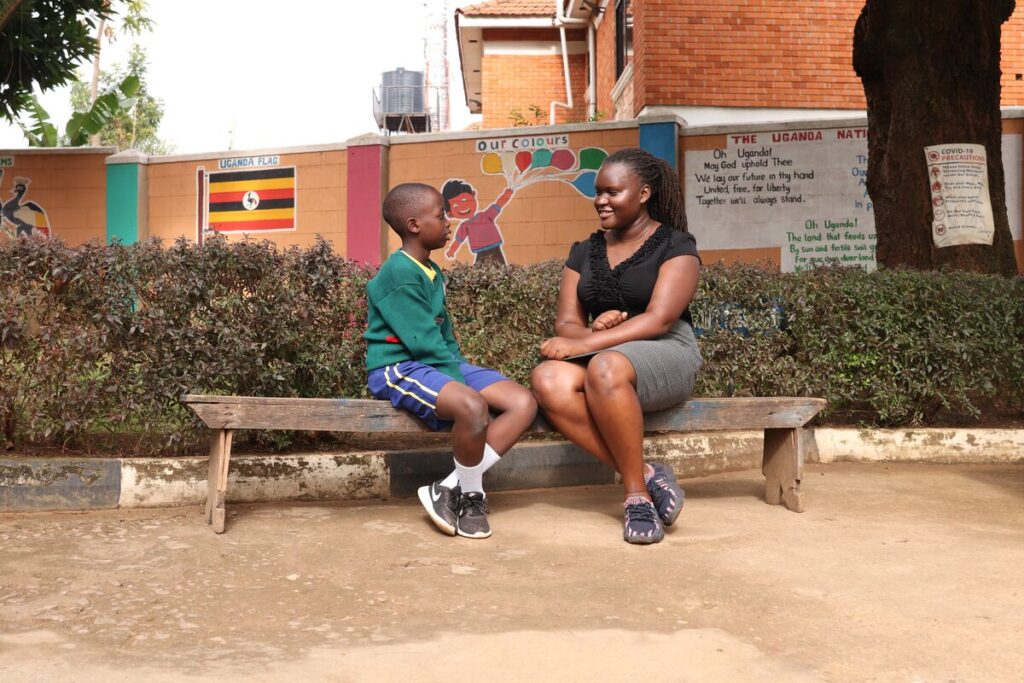
Sylivia has always had a heart for working with kids in hard places.
“We, the children, had to share that little food. So we would drink a lot of water to fill up our stomachs then eat the food,” Sylivia recalls.
But despite the challenges they faced, her family never stopped attending church. When they moved to the city, her mom found a church, St. Stephen’s Kisugu, which they attended.
While attending church, Sylivia’s mom learned about a program that was supporting those who were struggling to buy food.
Her mom also later learned of the church’s support program that helped take kids through school. She secured a slot for Sylivia’s young brother who was in grade 4, and he was able to return to school.
Sylivia sent in her application but had to wait a little longer for a sponsorship opening. As she waited, she chose to volunteer in the children’s ministry at church. She helped prepare classes for the kids and helped prepare teaching materials for the teacher.
Eventually, a slot for sponsorship opened up when a member of the church offered to sponsor a child. Sylivia was able to rejoin her school back in Jinja in the third term and was fortunate to ace her exams and proceed to the next grade.
Courage to Dream in a Hard Place
While in high school, Sylivia discovered her dream. She wanted to become a doctor. This came about when she witnessed her mom struggle to access health care services when she miscarried a pregnancy.
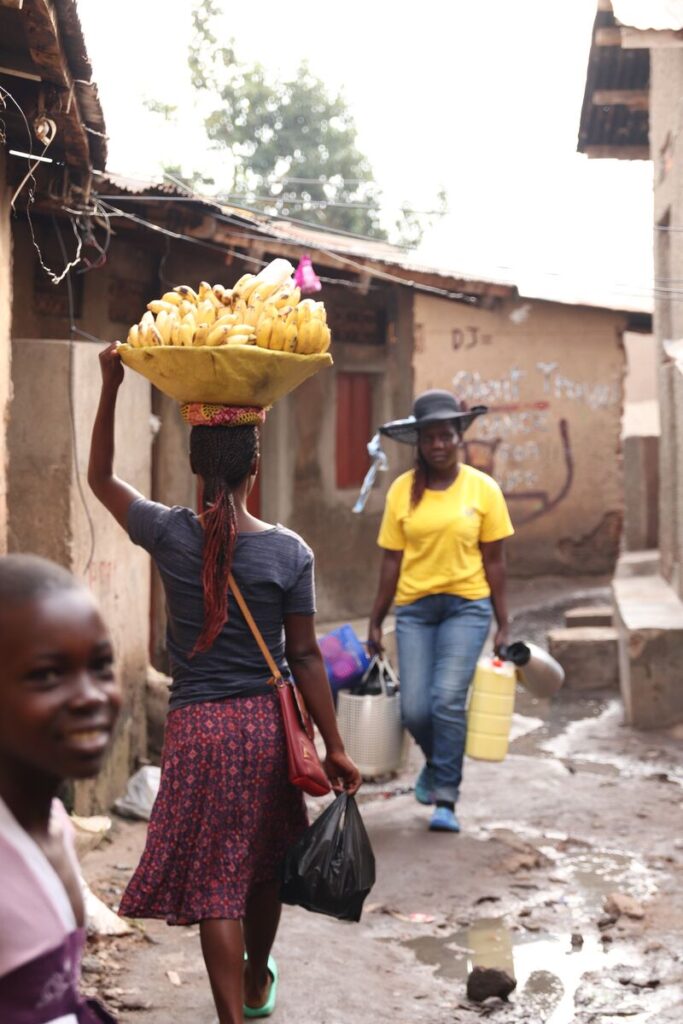
Residents walk around in the narrow streets of the Kanyogoga slum.
“She was expecting twins and struggled to afford money to pay at the hospital for her checkups and the medication she needed. Seeing the pain she went through after the loss of the pregnancy made me realize that I wanted to become a doctor and help the poor in the community,” she recalls.
This motivated Sylivia to work hard in her sciences with the hope that she would one day become a doctor.
During the breaks in high school, she often would take up housemaid jobs to earn an income and help support her mom.
At that time, Sylivia’s father had been overwhelmed and was not in a good state to care for the family. So he left for the village in Jinja.
Meanwhile, Sylivia excelled in her final high school exam. This, she says, assured her that her dream of becoming a doctor was closer to becoming a reality.
She, however, missed being selected to pursue a medical course in the government universities by a few points. But this did not deter her from pursuing her dream.
She was able to secure a slot for a diploma course in biomedical engineering. Through a scholarship fund from the sponsorship program at the church and a government office, Sylvia was able to raise the fees to attend university.
Giving Back and Paying It Forward
After graduating from university, Sylivia worked as a biomedical engineer for a while and was able to save enough money to not only care for her little brothers but also buy land, build a house, and relocate her family from the slum.
She joined the student support program started by the church and is currently sponsoring a girl through school.
“I took this girl into our family home because I realized we were similar in many ways,” Sylivia says. The girl had dropped out of school to work so she could provide for her family in the slum.
“I saw a great potential behind the burden that her face carried on the day that I met her. Just like someone saw great potential in me and held my hand, I knew at that point that God was calling me to extend the same hand to this little girl,” Sylivia says.
But even as she worked as an engineer, she felt the need to serve kids at the church. So, Sylivia took classes that equipped her with skills to teach kids in Sunday school. She says the more she gave of herself to the kids, the more fulfilled she felt.
“I love seeing the lives of the kids in hard places transformed. This motivates me to give my all to these kids every day,” she says.
Sylivia felt led to fully serve the children, so she left her engineering job to join the church ministry. She is currently working toward a degree in psychology.
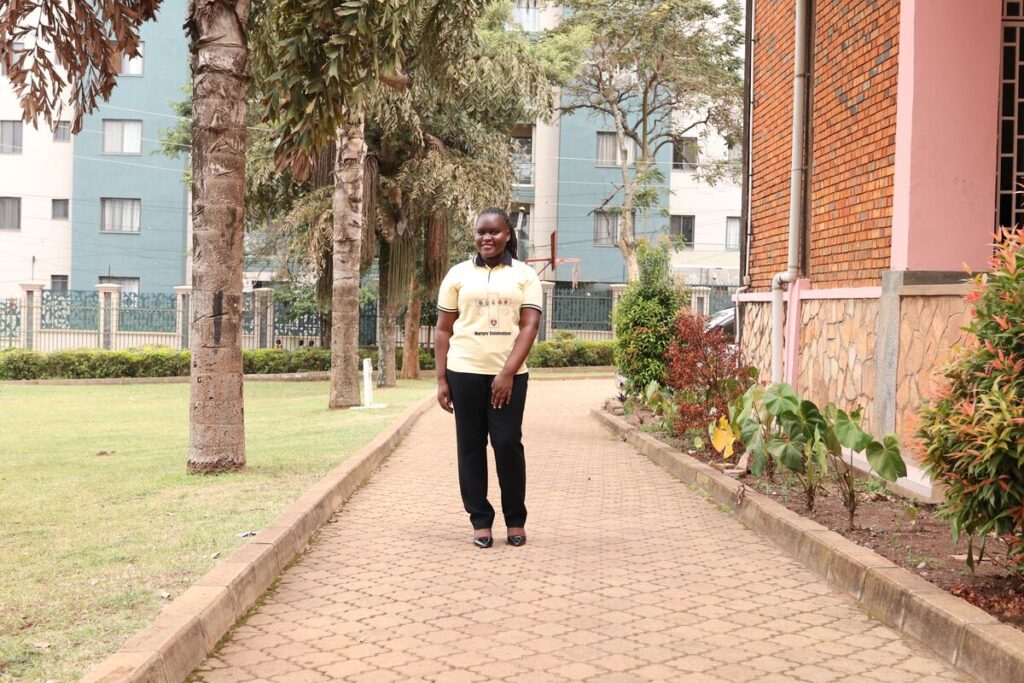
Sylivia encourages kids to hold onto their dreams so that they may one day transform their communities.
When a chance to become the Children’s Ministry Coordinator came up, she sent in her application, and she was hired.
With OneChild stepping in to help the church expand its sponsorship ministry by connecting it to sponsors abroad through the Bridgely App, Sylivia is optimistic the ministry will connect with many more kids living in poverty.
“We would love to do more for the community around us because the need is great. But we have limited resources,” she says. “This sponsorship will help support us to reach the great need that lies in this hard place.”
Silivia is also hopeful that, just as she was able to dream and had Child Champions who encouraged her when she faced adversity, many more kids like her stand a chance to rewrite their future as she did.
“Every child in a hard place needs a champion because the lack of hope and the lack of mentors makes kids give up on their dreams, and this is why I believe God called me to serve the kids.”
Her hope and prayers for kids in hard places is that they hold on to their dreams because they are the ones who will bring transformation to the families and communities in hard places.
Give more kids in poverty a chance to have real hope and a better life by sponsoring a child.
We are accountable to the children we serve AND to our donors.
Our accountability to our donors is one of our highest priorities. Our goal is to use the funds entrusted to us as wise stewards. To do this requires continued monitoring of our fund distribution. OneChild is also a member in good standing with the Evangelical Council for Financial Accountability (ECFA)
